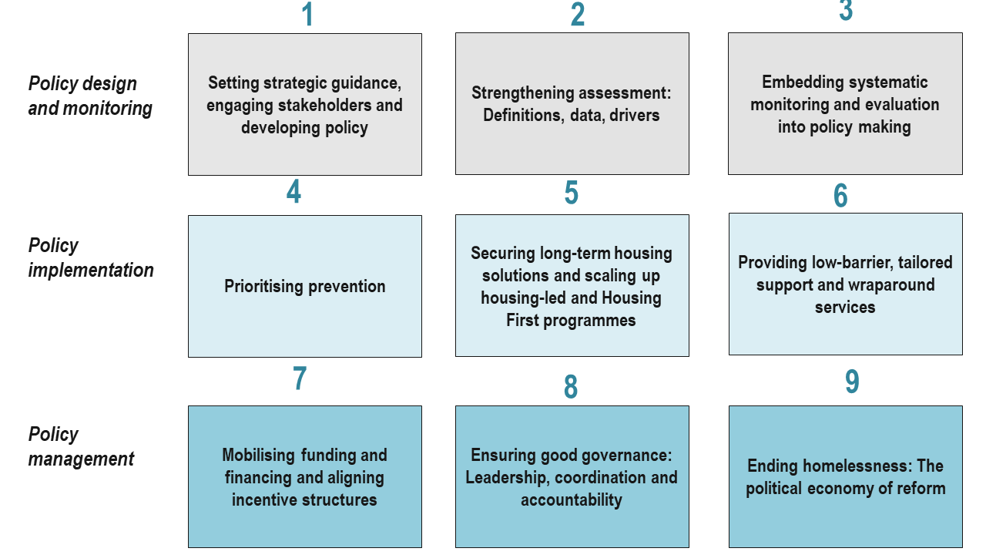It is estimated that on average across the OECD roughly 0.25% of the population is experiencing homelessness, according to national statistical definitions of homelessness. These definitions may include people sleeping rough, staying in emergency or temporary accommodation, living in institutions, residing in unconventional dwellings, or staying with family and friends. However, significant differences in definitions and measurement approaches (such as street counts and administrative data) among countries make it challenging to measure and compare homelessness internationally.
Homelessness
Homelessness is a pressing challenge in OECD and EU countries. At least 2 million people in the OECD were considered to be experiencing homelessness in official government statistics in 2023 or the latest year. However, this is likely an underestimate, due to persistent measurement challenges. There is renewed momentum to improve the measurement and monitoring of homelessness, and to design public policies to prevent homelessness and create sustainable pathways out of homelessness.


